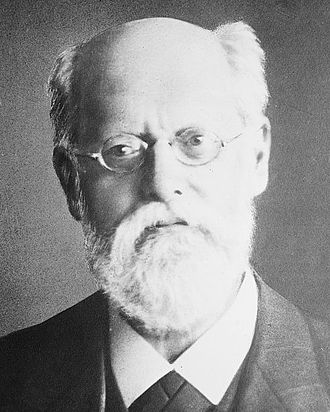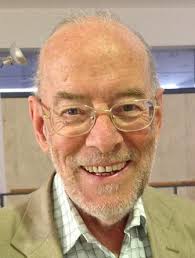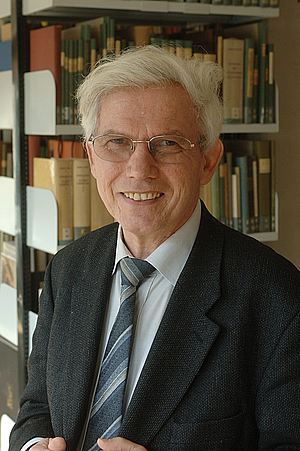Continuing from Why Christianity Happened — Toward a Secular Approach to Christian Origins
James Crossley seeks to explain what he calls the “puzzle” of the nearly complete failure of biblical scholars to apply “social-scientifically informed approaches” (p. 3) to the study of Christian origins between the 1920s and 1970s. Crossley is actually addressing two types of historical explanation: those that cover the social context of emerging Christianity and those that apply what would more correctly be called “social-scientific” — the application of “social-scientific methods, models and theories”.
Behind the several reasons he offers for the failure of biblical scholars to take up either of these historical inquiries stands one constant:
the need to make sure that Christianity is not explained away purely in human terms. (p. 17)

One of the two exceptional authors whom Crossley singles out as being responsible for a theoretically based social-economic explanation for the rise and spread of Christianity was Karl Kautsky. Crossley doesn’t quote Kautsky on this point but his words are worth noting in order to demonstrate that the ideological interest of theologians has been recognized from the beginning of ‘scientific’ historiography as the reason for their resistance to it:
It is no wonder then that secular historiography feels no great need for investigating the origins of Christianity if it starts from the view that Christianity was the creation of a single person. If this view were correct, we could give up studying the rise of Christianity and leave its description to our poetic theologians.
But it is a different matter as soon as we think of a world-wide religion not as the product of a single superman but as a product of society. Social conditions at the time of the rise of Christianity are very well known. And the social character of early Christianity can be studied with some degree of accuracy from its literature. (Kautsky, Foundations of Christianity, 1908, 1923, translated by Henry F. Mins, 1953, my bolding in all quotations)
Since there can be little question this religious interest lies at the core of the resistance of biblical scholars towards social explanations for their faith there is little point in revisiting the details of this resistance that Crossley covers:
- The post World War 1 Karl Barth encouragement to stress the “radical otherness” of the “true” gospel in defiance of “liberal Protestantism’s” “social” gospel;
- Form critics and the dominant German Protestant NT scholarship not being willing to locate Gospel traditions “firmly within the everyday social setting of Palestinian and Diaspora Judaism” given the “anti-Jewish” environment of the 1920′, 30s and 40s;
- The taint of Marxism so often associated with much of the historical work that was examining social and economic factors as causal agents.
At one point Crossley says that
an additional and related reason for the neglect of social-scientific approaches to NT history is that it takes us perilously close to explaining away Christian origins in terms of socioeconomic context and moves away from ideas, theology, the divine, and the overwhelming individual influence of Jesus. (p. 15)
But this is hardly correct. Far from being an “additional and related reason” such fear is the single explanation for the rejection of the methods being taken up in history departments.

Interestingly Crossley sees James Dunn as epitomizing this fear:
This fear of Marxism or related views was so deeply embedded in NT scholarship it continued into and well beyond the 1970s. In his recent book on the historical Jesus, James Dunn argues that “Jesus’ call to and teaching on the poor are not reducible to some class-war dogma” and recommends that certain hard sayings (e.g., Mark 10:25) should not be treated “woodenly.” Dunn is a good example because his scholarly work is consistently well referenced and consistently interacts with a variety of scholarly views. But in this instance there is no reference to and no indication of any particular scholar Dunn has in mind. So why do we need to be told that Jesus’ sayings are not reducible to class-war dogma? Who said they were? (p. 12)
I said “interestingly” because James Dunn’s student, James McGrath, expressed a similar knee-jerk fear of “the Marxist” in response to the following words I quoted by historian Eric Hobsbawm.
In no case can we infer the reality of any specific [hero, person] merely from the ‘myth’ that has grown up around him. In all cases we need independent evidence of his actions.
Historian Eric Hobsbawm, quoted in How (most) biblical “historians” work: a case study.
Dunn’s student responded with this:
. . . might Hobsbawm’s desire to rewrite the legacy of Communism suggest that his statement has more to do with ideology than mainstream historiography?
Such fears did not handicap other historians.
A digression into the mythicist question
I digress a moment to quote a few more of Crossley’s words that coincidentally draw attention to another question troubling some biblical scholars today: the resurgence of interest in the Christ myth theory or “mythicism”. If faith-interests have put biblical scholars on guard against social explanations for the rise of Christianity then they certainly must be a significant factor in their hostility towards mythicism. The following words by theologian Robin Scroggs against Marxist influence warn one of what to expect were he to come face to face with mythicism:
[H]e develops a view of Christianity’s emergence purely as a social process, as a protest against the class society and its injustice. The importance of the figure of Jesus completely disappears . . . [he] is not even concerned whether Jesus existed or not. Nothing would have been different had he not. (Scroggs p. 177, quoted by Crossley p. 15)
Crossley is well aware of this pressure professionally and can remark:
The supreme importance of the figure of Jesus in Christian theology does not need repeating, but to reduce his role in history, not to mention that of Christian heroes such as Peter and Paul, to general nontheological socioeconomic “forces” is almost bound to produce a negative reaction in a Christian-dominated scholarly field. (p. 16)
Such comments touch on my own reason I have tended to shy away from the term “mythicist”: I see my own interest not in the existence or non-existence of Jesus per se but in the historical question of how to explain Christianity’s origins and growth. The evidence we have as I understand it at present seeks primarily an explanation of how certain ideas evolved. It is difficult to know how to apply social explanations before we can be sure about the groups most influential and their location both temporally and spatially.
Of course James Crossley himself is not a Christian and other anti-mythicists such as Bart Ehrman and Maurice Casey have not been Christians either, or at least not so in any orthodox sense. But their careers have been bound up within the parameters of the “correct assumptions” and “right thinking” of the theologian-scholarly tradition. They have been welcomed in the academy because they do accept the ground rules. It’s comparable to the left-right divide among the mainstream political parties and mainstream media opinions. Vigorous debate is acceptable, even healthy, so long as it is kept within the politically correct boundaries — as Thomas Brodie well knew. (We saw in the previous post how Crossley also abides by the correct historical framework despite his radically different approach to explaining Christian origins.)
When biblical scholars do do social-critical history
Look what happens with theologians do taste the forbidden fruit. Crossley observes that Gerd Theissen apologizes to his readers for being partly influenced by some Marxist ideas. He finds it necessary to explain that that doesn’t mean he’s a Marxist.
But Crossley turns and sees a greater abomination than this:
Indeed, it is particularly interesting that social sciences are clearly used to defend the importance and superiority of Christianity among the early pioneers. For example, one of the criticisms sometimes raised against Harnack’s The Mission and Expansion of Christianity, and one that could be raised against many present-day works of NT scholarship, is that it explains the success of earliest Christianity in terms of its superior message over its rivals. (p. 17)
And another is found when one looks closely at the social histories attempted by bible scholars:
the pioneers of social-scientific approaches placed the emphasis on social context rather than on explicit social-scientific models, the exceptions including, significantly, two famous Marxists outside the discipline of NT studies: Engels and Kautsky. (p. 17)

Crossley welcomes the renewed interest in social-scientific approaches among a growing number of NT scholars since the 1970s and upholds Gerd Theissen as one of the major figures leading the way with his “works on wandering charismatics and the shift from rural Palestine to urban centers” (p. 21).
To step outside Crossley’s book for a moment, we find an excellent explanation of the value of consciously and self-critically applying a “social scientific model” here:
A model is a conceptual map, a conscious framework that, because it is conscious, can itself be changed, abandoned, or replaced, and, as framework, can organize, interpret, and even predict the data it contains or imagines. Our choice is not whether to use them or not but whether to use them self-consciously and self-critically or to let them use us willingly or unwillingly. The value of a multicultural, cross-cultural, or comparative model is that it helps us discipline the inevitable tendency to take one’s own perfectly valid but particular experiences and erect them all too swiftly into human universals. (Crossan, The Birth of Christianity, p. 149)
Crossley’s own statement of the importance of applying these methods:
[T]hey [social-scientific approaches to the NT] have the potential to provide methods with which to explain the rise of Christianity in nontheological human terms; indeed, some will be adapted in this study [Crossley’s] for that very purpose. (p. 21)
This leads to Crossley’s defence against the charge of a “non-Christian bias”. Interesting that he does not consider a charge of an “anti-Christian bias”. This brings us to the next discussion of the biases on the other side of the fence, to what extent they are healthy or detrimental, to Crossley’s discussion of the biases of several prominent scholars, to my own observations of Crossley’s biases and to the biases of other biblical scholars who endeavour to apply their own social-scientific models to explaining Christian origins.
If you enjoyed this post, please consider donating to Vridar. Thanks!

“I see my own interest not in the existence or non-existence of Jesus per se but in the historical question of how to explain Christianity’s origins and growth.”
I feel the same way. I am interested in the social origins and growth of all Abrahamic religions, not disproving or undermining the belief systems of said religions. Unfortunately, I don’t think our intentions make the faithful any more comfortable as to reach such questions implicitly requires dismissing explanations that depend on divine will. Looking to humanity instead of divinity for explanations of how these religions came to be is viewed as a rejection of the religions’ own explanations of how they came to be and leads to accusations of Marxism and postmodernism.
I’d have more confidence in a move by NT scholars toward “social-scientific” criticism if I thought that they really meant the last of those two words and that their definition of it included a big dose of empiricism and as much scientific method as can plausibly be applied in history. But I don’t think that’s actually what we’re getting with this move toward things like Memory Theory, Orality, and Aurality. What were really getting instead is capital-T Theory in the academia sense of the word: in particular, Marxism and Postmodernism. Theory is somewhat successful in tearing down ideas, but is terrible at generating successful predictions, producing repeatable results — the things that make science successful and everything else fail.
Related: Larry Hurtado’s takedown of one branch of this whole Memory Theory, Orality, Aurality crowd, the “performance criticism” theory (PDF): https://larryhurtado.files.wordpress.com/2010/07/oral-fixation-in-nt-nts-2014.pdf
I did not wander far into John Crossan’s discussion of such theoretical models. What he also points out is that everyone uses them anyway, but too many do so unconscious of the particular theory or model they have in their head. As a result they confuse their interpretations with “plain readings” and “facts” and are working (unconsciously) with predictions that are so general as to be useless.
Good hypotheses do enable us to make meaningful predictions and the quotation I included from J.D. Crossan makes this point. So if I were testing a particular theory I would ask what I should expect to find in the evidence if it were true. That’s a prediction but its value rests upon how specific the prediction is: if what we expect is no different from what others would also expect given contrary theories then the prediction is useless.
It’s not as firm as tests in the laboratory but it is a way forward to the greater probability pending new information and understanding.
Thanks for the Hurtado link. I will read it closely. Hurtado is unfortunately one of the least-methodologically informed scholars today and a very poor example for how “history” should be done. But he can be proud that his “scientific” studies have all led to the same conclusion — that the “reality” of Christian history confirms the basic narrative of the NT and the Christian faith (coincidentally, of course).
Bertie,
You probably have hit the nail on the head.
Crossley is not advocating “social-scientific” approaches. He is advocating “social-scientifically informed approaches,” or truthiness (verisimilitude), not truth.